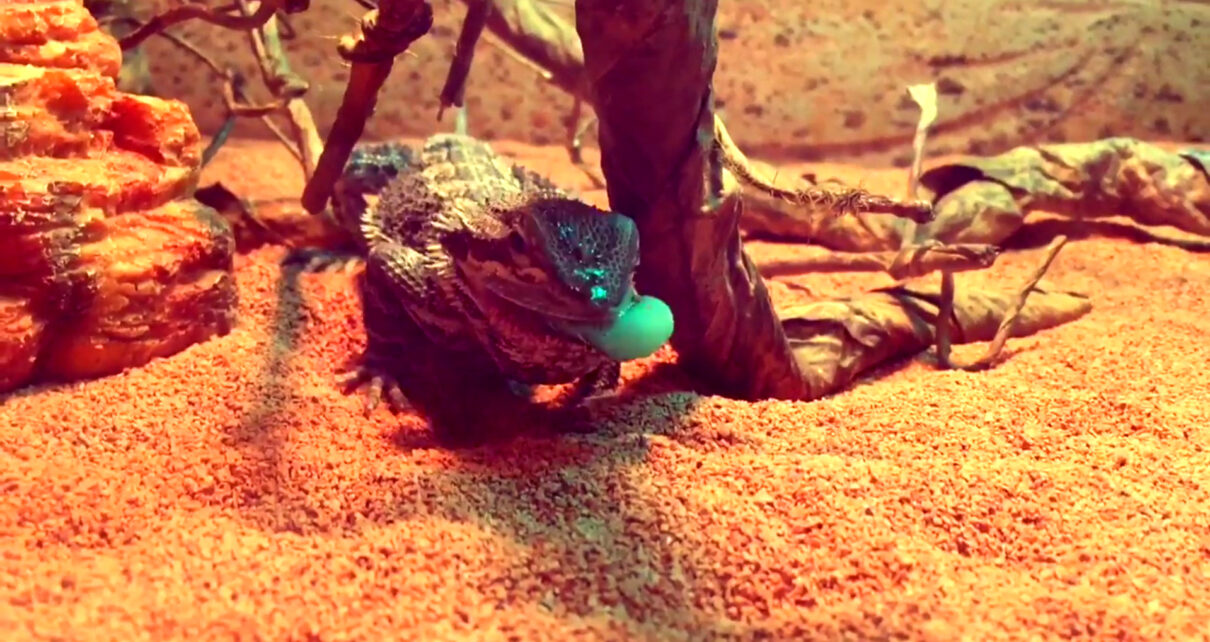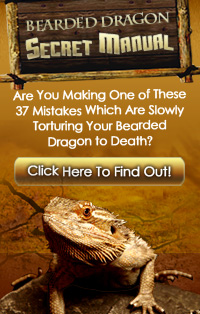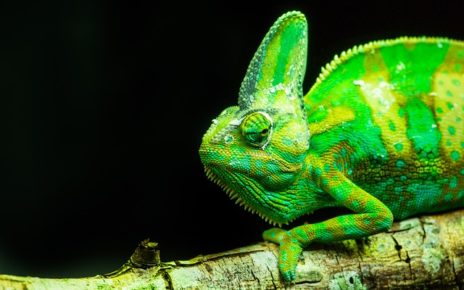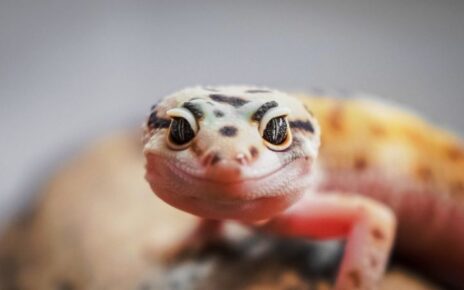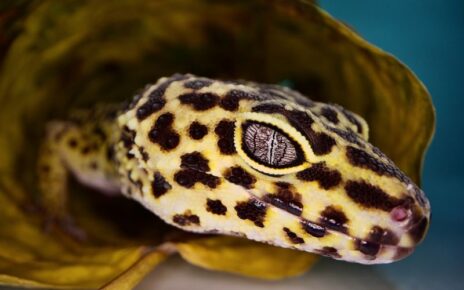Figuring out how many hornworms to feed a Bearded Dragon a day varies based on a number of factors like age and activity level, but in most cases, a bearded dragon can eat up to 5 to 10 hornworms each day as part of a healthy well-rounded diet.
In the following article, we’ll address in more detail how many hornworms to feed a baby bearded dragon or an adult bearded dragon. If you’re looking for a good source of Live Hornworms (Click Here).
Can Bearded Dragons Eat Hornworms
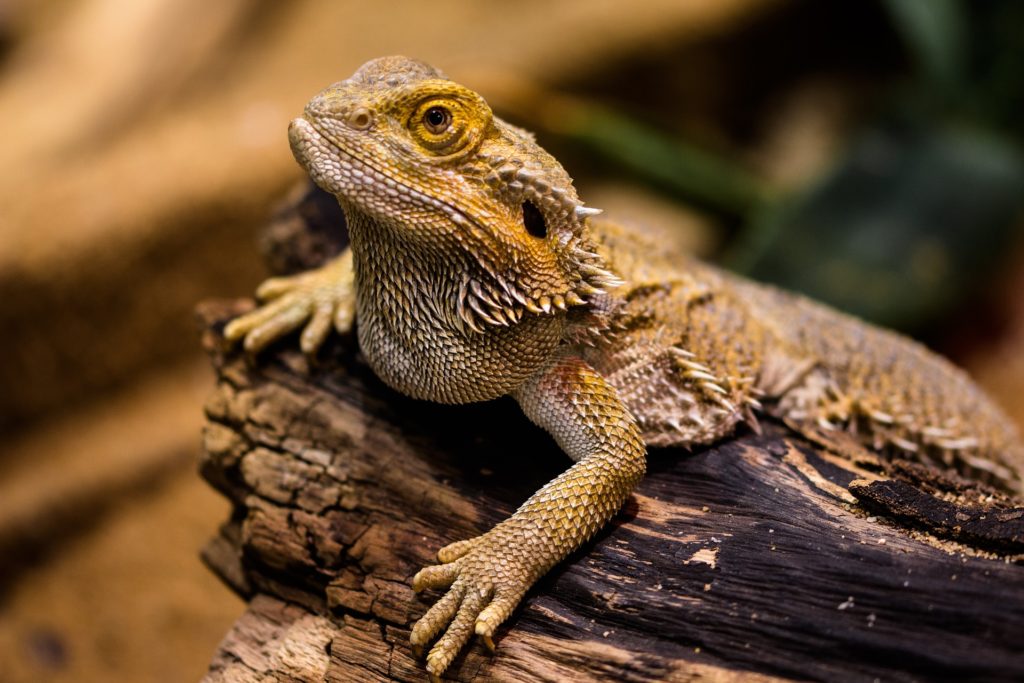
Yes, bearded dragons can eat hornworms, but they should only make up a small portion of a well-balanced diet. Hornworms need to be fed in combination with other feeder insects like Dubia Roaches, Crickets, or Mealworms to ensure your bearded dragon is meeting all of their nutritional requirements.
Can Baby Bearded Dragons Eat Hornworms
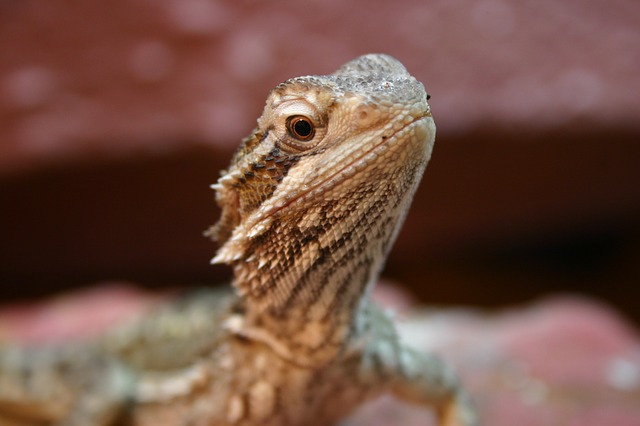
Baby bearded dragons can eat hornworms, but you need to make sure that they are small enough for a baby bearded dragon to swallow. This can be a challenge since hornworms grow very fast, so it’s important to quickly feed your baby bearded dragon immature hornworms before they reach a size that can pose a choking hazard.
One easy way to tell if a hornworm is too big for a bearded dragon to swallow is to make sure the hornworm isn’t that much longer than the space between a bearded dragon’s eyes. This will ensure a baby bearded dragon can chew and swallow the hornworm without any problems.
Adult bearded dragons, on the other hand, can easily chew and swallow a fully mature hornworm, so you won’t need to worry about an adult bearded dragon having any trouble eating a hornworm.
How Many Hornworms to Feed Bearded Dragon a Day
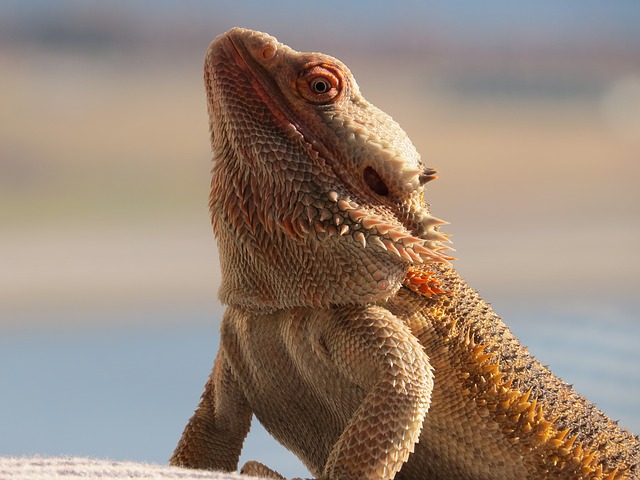
An adult bearded dragon can eat 3 to 5 fully mature hornworms each day, or they can eat 8 to 20 immature hornworms at each feeding.
Hornworms (Buy Online) are a good addition to an adult bearded dragon diet since they contain a moderate amount of protein, and they have a low-fat content. However, hornworms should only make up a small portion of an adult bearded dragon’s diet since they should primarily be eating leafy greens and vegetables.
How Many Hornworms to Feed Baby Bearded Dragon
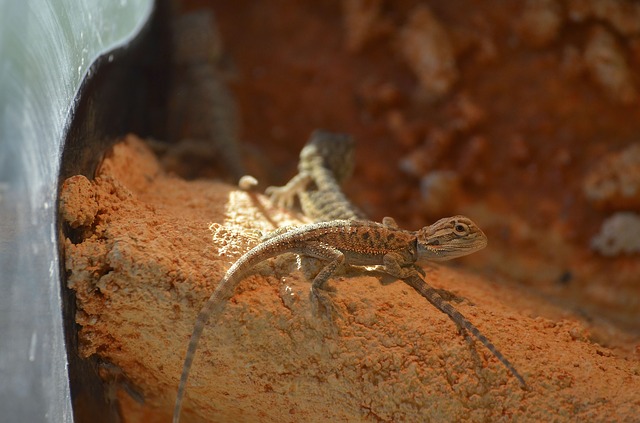
Baby bearded dragons can eat 20 to 40 small hornworms each day depending on their appetite. While juvenile bearded dragons can eat 10 to 20 medium-sized hornworms at each feeding.
Sub-Adult bearded dragons need a good amount of protein in their diet to fuel their rapid growth as they reach adulthood at around 5 to 6 months of age. After that, it’s important to reduce the number of feeder insects you give to your bearded dragon and start to slowly transition them over to a primarily vegetarian diet.
How Often Can Bearded Dragons Eat Hornworms?
Bearded dragons can eat hornworms once a day, but they aren’t the best source of protein for a healthy bearded dragons diet. That’s why it’s important to try to feed a bearded dragon a wide range of feeder insects with hornworms making up a small portion of their diet.
Baby Bearded Dragons and Hornworms
Juvenile bearded dragons can eat hornworms on a daily basis. And baby bearded dragons can eat up to 20 to 40 small hornworms each day. However, it’s better to feed them around 10 hornworms each day along with other feeder insects like dubia roaches, worms, crickets, and mealworms.
Young bearded dragons need to eat lots of insects to meet their daily protein requirements. However, it’s important that they get enough protein from those insects to support their rapid growth and development.
Hornworms only have a 9% protein content which is very low for a feeder insect.
If you’re looking for a high protein insect for a young bearded dragon here are some better protein-rich feeder insect options:
Adult Bearded Dragons and Hornworms
Adult bearded dragons should eat 2 to 5 hornworms three times per week, which works out to be 6 to 15 hornworms each week. This will give them a nice treat to look forward to without filling them up too much, so they still eat enough vegetables and greens.
An adult bearded dragon diet should be made up of 70% greens and 30% insects.
That’s why it’s important to not habituate an adult bearded dragon to eating insects like hornworms on a daily basis, or you might have a hard time getting them to eat any vegetables or leafy greens.
Hornworms for Bearded Dragons
20-30ct Live Hornworms
Live Hornworms (Buy Online) can be shipped anywhere with a live arrival guarantee. The hornworms in this kit are all 0.25 to 0.5 inches, and they have been selected to all have a uniform size, which makes them a great choice for baby bearded dragons. They also come with a heat pack in cold temperatures or a cool pack in hot weather. So you can purchase them any time of the year without having to worry about losing any hornworms in transit.
12 Live Hornworms with Hornworm Food
Live Hornworms with Hornworm Food (Buy Online) will arrive with at least twelve 1-inch hornworms in each cup. That makes this hornworm kit a perfect treat for an adult bearded dragon. The cup also comes filled with enough hornworm food for all the hornworms to grow to full maturity, and it’s delivered with fast free shipping.
What To Feed Hornworms for Bearded Dragons
Hornworm Chow
Hornworm Chow (Buy Online) is a vitamin-enriched hornworm food that will allow you to raise hundreds of hornworms. Each bag of hornworm chow weighs one pound, and that’s enough to produce 2.5 pounds of prepared hornworm food.
Hornworm Nutrition for Bearded Dragon
Hornworms are a nutritious feeder insect for bearded dragons. They contain 9% protein and 3% fat, . They are also a good source of water since they have an 85% moisture content, which makes them a great insect to feed to a bearded dragon that refuses to drink water.
Hornworms are also an excellent source of calcium at 46 mg/100 grams. Their high calcium content makes them a great feeder insect for bearded dragons to prevent metabolic bone disease caused by a lack of UVB light and calcium in their diet.
Protein: 9%
Fat: 3.0%
Calcium: 46.4mg/100g
Moisture: 85%
Bearded Dragon Hornworm FAQ
Can Bearded Dragons Eat Dead Hornworms
Dead hornworms should not be fed to a bearded dragon since they can cause serious health problems. Dead hornworms can harbor a wide range of bacteria, which can start to grow out of control once they die. These bacteria can cause intestinal problems for any bearded dragon that ingests them.
If a hornworm has only been dead for a short time then it might be safe to feed them to your bearded dragon. However, if the hornworm has been dead for a prolonged period then it’s best to just discard it and feed your bearded dragon a fresh living hornworm.
Hornworms also have a very high moisture content, which makes them hard to dry out properly, so you rarely see dried hornworms for sale.
Can Bearded Dragons Eat Wild Hornworms
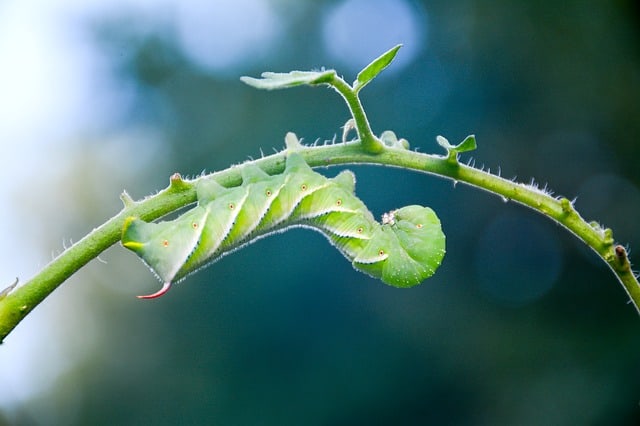
You should never feed a bearded dragon wild insects since they can harbor harmful pathogens. Hornworms also feed on plants that contain poisonous compounds (Tomatine, Nicotine) which can cause severe intestinal distress, nervous system disorders, or even death when consumed in large enough quantities.
Can Hornworms Bite My Bearded Dragon
Hornworms can bite a bearded dragon, but a hornworm’s mandibles are small and they can’t produce enough force to break through a bearded dragon’s scaly armor. Even when a hornworm bites human skin it barely feels like a slight pinch, so you have nothing to worry about when it comes to your bearded dragon getting bitten by a hornworm.
Types of Hornworms
If you haven’t heard of hornworms before, you might want to know a little more about this insect before you feed them to your bearded dragon. If you’ve ever grown tomatoes in your garden then you’ve probably had to fight off an infestation of Tomato Hornworms (Manduca quinquemaculata).
These large green worm-like insects have voracious appetites, and they can quickly defoliate a tomato plant. They also have a cousin the Tobacco Hornworm ‘Goliath Worm’ (Manduca sexta) that’s even larger, and as their name suggests they primarily feed on tobacco plants.
Both insects can be purchased as feeder insects from reputable insect breeding companies:
Tomato Hornworm
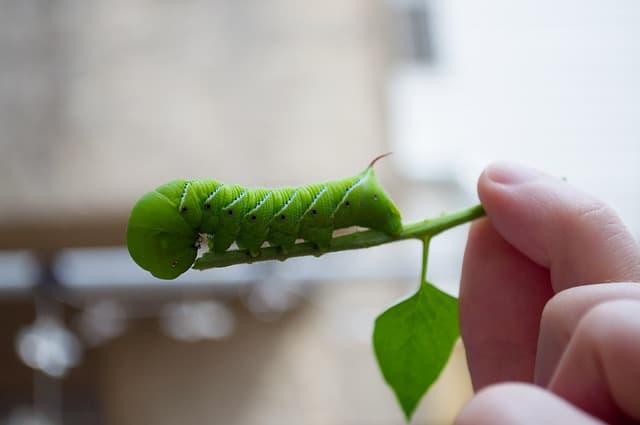
Tomato hornworms are distinguished by the V-shaped marking on their back, and they have adarker spike on their tail. Tomato hornworms primarily feed on tomato plants, but they can also feed on tobacco plants along with other nightshades like peppers, eggplants, and potatoes. Tomato hornworms are very easy to find for sale online or at local pet stores.
Tobacco Hornworm
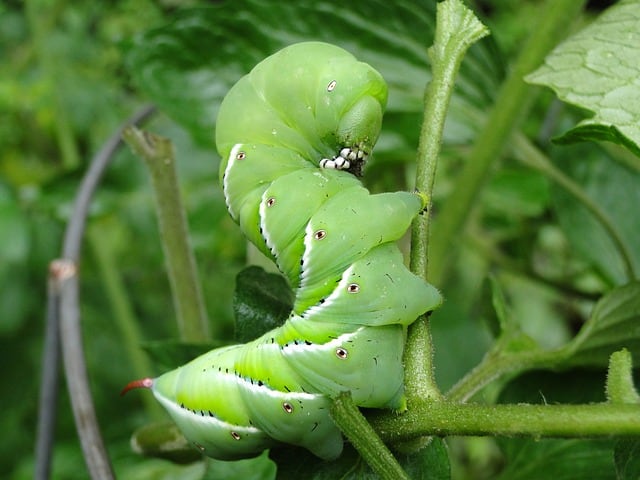
The tobacco hornworm is usually green with seven diagonal marks along their side, and they have a red spike at the end of their body. The spike or ‘horn’ is where they get the name ‘Tobacco Hornworm. In the wild, they mainly feed on tobacco plants, but they will also feed on tomato plants if they are available. They can also feed on other plants in the nightshade family, but they are primarily only a major problem in areas with a lot of tobacco farmers.

